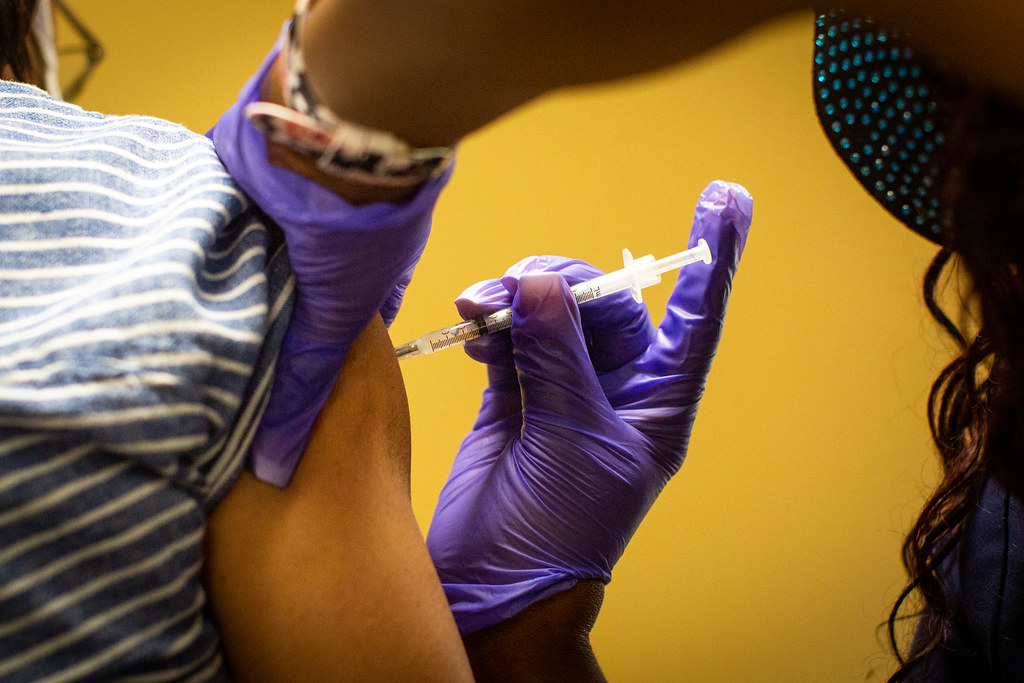How long has it been since you heard the name for a new variant of COVID-19? Perhaps not since Omicron surged in the United States at the end of 2021.
The World Health Organization is now monitoring a new strain of concern: EG.5, or Eris, which is technically a type of Omicron. According to the WHO, it’s a subvariant of interest and seems to be accounting for a growing share of cases in multiple countries, including the U.S.
Global health officials say they’ll continue to monitor Eris to see how it might mutate. But for now, experts say the risk at a global level is expected to be roughly in line with other variants currently in circulation.
Dr. Catherine Troisi, an infectious diseases epidemiologist at UTHealth Houston School of Public Health, said it’s hard to know the exact cause of the recent uptick in COVID cases.
“It’s hard to tease out this new variant, which may or may not be more infectious than previous ones. Luckily, it doesn’t seem to cause more severe disease,” she said. “But we were suspecting that we would have a rise in cases in the summer as we did the past couple of years, because you may not have noticed, but it’s been hot in the South. And so people tend to spend more time inside in air conditioning, which facilitates transmission of the virus.”
Troisi said it is also hard to know exactly how many new cases there are, given the lack of testing infrastructure.
“When the public health emergency ended, a lot of tracking went away,” she said. “The latest data shows 17% of cases are due to this variant. But we’re not tracking cases really well because people have stopped testing. Even if you test positive, it doesn’t get reported to health departments. So really the markers we have are hospitalizations, which we have seen go up quite significantly – although it’s important to remember, we are still at historic lows in terms of hospitalizations due to COVID.”
» GET MORE NEWS FROM AROUND THE STATE: Sign up for our weekly ‘Talk of Texas’ newsletter
Public health officials are watching hospitalization numbers and waiting on a new booster vaccine that should be out in about a month, Troisi said.
“A very large percentage of the U.S. population has either been vaccinated and boostered or had COVID, so immunity levels are pretty high,” she said. “Now, this variant may escape the immune protection that you have in terms of illness, so you may still get sick. Again, so far, we’re seeing that it’s not causing more disease; it’s not like you don’t have any protection at all, but the booster that will be available in a month or so will provide better protection against this particular variant.”
Troisi said that COVID still causes more deaths than the flu, and like the flu people should plan to receive regular vaccines to protect against new strains.
“Are we going to have to live with this virus? Yes,” she said. “But just like with flu, where theoretically one should get protected every year with an updated vaccine to protect against the new strains that circulate of flu, that’s probably going to be the case with COVID as well.”
Troisi said other methods of protection — including masking — are still an effective way to protect yourself.
“There’s a couple of things you have to consider about your particular situation. Are you older, or do you have underlying conditions? Are you immunocompromised? And you may want to take more precautions if the effects of getting infected with flu or with COVID can be more serious,” she said. “You have to think about who lives in your household: Maybe you’re healthy and young, but you live with your grandmother who’s not. And so it also has to do with your risk tolerance. Unfortunately, everybody has to decide for themselves what their risk tolerance is and what the consequences could be if they got infected.”
For those who do want to test at home, Troisi said the new subvariant should show up on at-home tests.
“If you have kits that have an expiration date that has gone by, you can go to an FDA website and find some of those expiration dates have been extended,” she said. “So your kits may still be good, even though it says on the box that they are expired.”














